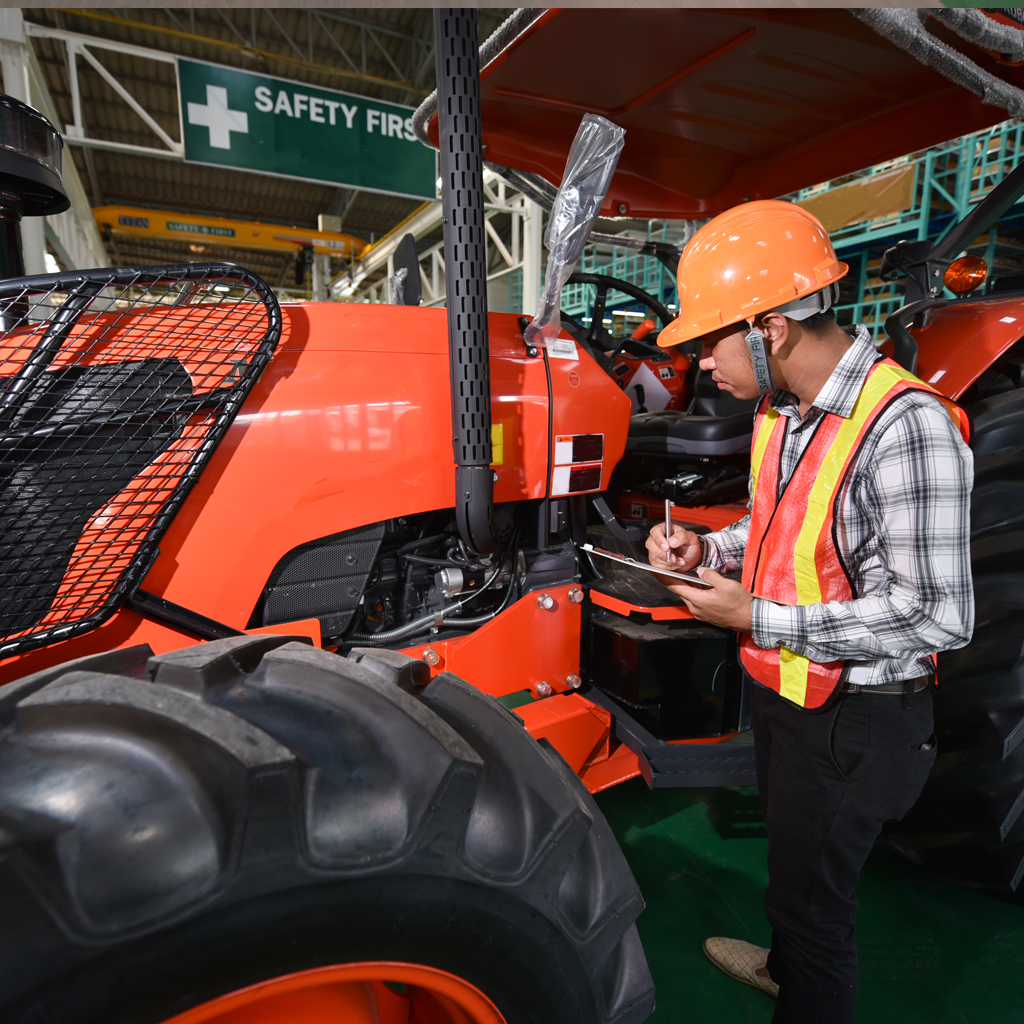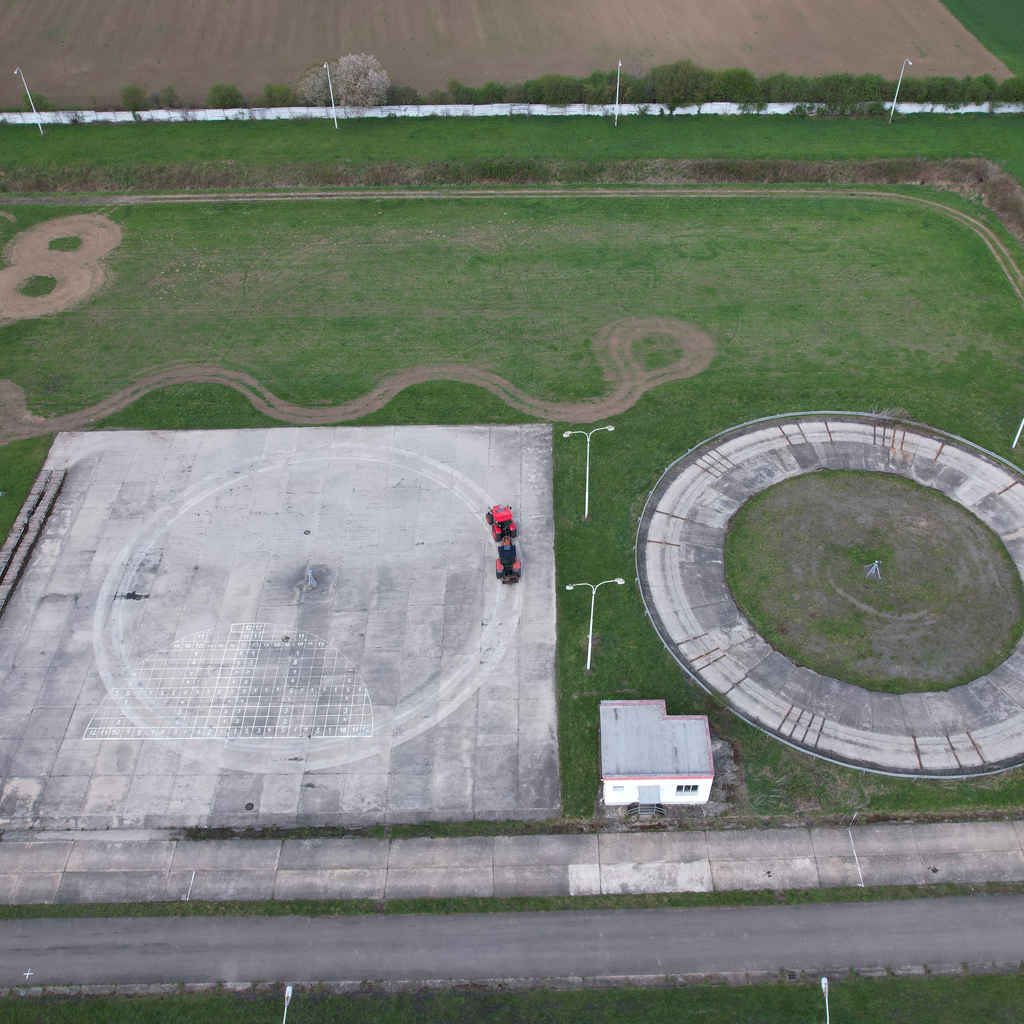Agricultrure and Tractors
At ITAC, we take pride in offering accredited testing and certification services that adhere strictly to EU and ECE regulations, specifically tailored for the tractor and agricultural sectors. As an authorized technical service company, our primary goal is to ensure that all vehicles meet the highest standards of safety, environmental protection, and performance. We provide comprehensive type-approval processes, including detailed inspections and rigorous testing, to guarantee compliance with Regulation (EU) No 167/2013 and its complementary regulations. Our experienced team works diligently to support manufacturers in achieving conformity with all applicable standards, ensuring their products are both reliable and market-ready.
Our commitment to quality and excellence extends beyond mere regulatory compliance. We actively collaborate with clients throughout the development process, offering expert guidance and support to enhance their product offerings. By utilizing our state-of-the-art laboratory facilities and leveraging our extensive industry expertise, we conduct a range of essential tests such as Mechanical Coupling Tests, Rolling-over Protection Structure (ROPS) tests, and Falling-over Protection Structure (FOPS) tests. This comprehensive approach ensures that every vehicle not only meets regulatory requirements but also excels in performance and safety. Our dedication to providing high-quality services has made us a trusted partner in the agricultural sector, enabling manufacturers to deliver superior products with confidence.
Regulation (EU) No 167/2013
Regulation (EU) No 167/2013 outlines the rules for the type-approval and market surveillance of agricultural and forestry vehicles. This includes ensuring vehicles meet stringent safety and environmental standards before they are allowed to enter the market. The regulation covers various vehicle categories, including wheeled tractors (category T), trailers (category R), and interchangeable towed equipment (category S) .
(EU) No 167/2013 on the approval and market surveillance of agricultural and forestry vehicles Regulation has 5 complementary regulations.
1- (EU) No 1322/2014 as regards the adaptation of the vehicle construction and general requirements for the approval of agricultural and forestry vehicles. (RVCR)
2- (EU) 2015/68 vehicle braking requirements for the approval of agricultural and forestry vehicles (RVBR)
3- (EU) 2015/208 supplementing Regulation (EU) No 167/2013 of the European Parliament and of the Council with regard to vehicle functional safety requirements for the approval of agricultural and forestry vehicles. (RVFSR)
4- (EU) 2018/985 supplementing Regulation (EU) No 167/2013 of the European Parliament and of the Council as regards environmental and propulsion unit performance requirements for agricultural and forestry vehicles and their engines. (REPPR)
5- (EU) 2015/504 Implementing Regulation (EU) No 167/2013 of the European Parliament and of the Council with regard to the administrative requirements for the approval and market surveillance of agricultural and forestry vehicles. (RAR)
Annex I of (EU) No 167/2013 LIST OF REQUIREMENTS FOR THE PURPOSES OF VEHICLE EU TYPE-APPROVAL states requirements to be crossed over for a particular type of vehicle.
(EU) No 1322/2014 has got 30 Annexes to evaluate construction requirements for a particular type of vehicle.
(EU) 2015/68 has got 13 Annexes to be studied braking requirements for a particular type of vehicle.
(EU) 2015/208 has got 34 Annexes to examine requirements of a particular type of vehicle.
(EU) 2018/985 has got 2 Annexes for environmental performance checks regarding sound emission and gaseous and particulate emission generated from a particular type of vehicle.
(EU) 2015/504 has got 11 Annexes stating Administrative Requirements for a particular vehicle. Preparation of Information Package; Certificate of Conformity; Approval Certificates are in scope of this regulation.
Apart from previous tractor regulations (EU) No 167/2013 addresses speed index of a design.
When a vehicle is constructed to have with a maximum design speed below or equal to 40 km/h. Letter ‘a’ is put at the type designation as a suffix.
When a vehicle is constructed to have with a maximum design speed above 40 km/h. Letter ‘b’ is put at the type designation as a suffix.
What we do?
ITAC – Vincotte works as a process partner of Tractor Manufacturers in Turkey and gives type approval certificates to best known brands.
ITAC – Vincotte works as a solution partner to conduct Mechanical Coupling Tests; Rolling-over protection structure tests (ROPS); Folling over protection structure (FOPS) tests at his own laboratory (IAS – International Automative Service) at Bursa.


About our services, You may concern
At ITAC, we provide comprehensive tractor testing services to evaluate the safety, performance, and environmental compliance of agricultural machinery. Our tractor testing procedures are designed to ensure that these vehicles operate at the highest standards.
ITAC provides a wide range of services in the Agriculture and Tractors sector, including type approval, testing, certification, homologation processes, and compliance assessment. These services are crucial for ensuring the safety, performance, environmental compliance, and industry standards compliance of agricultural and tractor vehicles.
Type approval is a certification that confirms agricultural and tractor vehicles comply with specific standards. This certification verifies the safety, performance, environmental compliance, and legal requirements of the vehicles. Type approval provides customers with assurance of the quality and reliability of their products.
ITAC’s services in the Agriculture and Tractors sector are generally conducted in compliance with national and international standards. These standards include ISO, EN, and EU directives, among others. These standards cover requirements related to vehicle safety, emissions, performance, and environmental compliance.
ITAC’s services in the Agriculture and Tractors sector provide clients with several advantages, including increasing the marketability of their vehicles, ensuring their safety, documenting their environmental compliance, and proving their compliance with industry standards. These services are also crucial for meeting legal requirements and gaining a competitive advantage.
